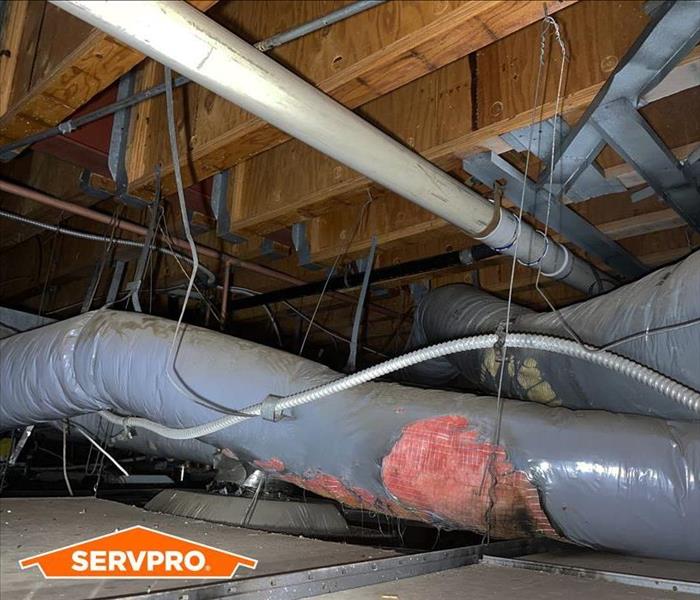5 Common Types of Smoke Damage
1/12/2022 (Permalink)
Depending on the substance that a fire consumes determines the type of smoke damage which occurs. Prior to inspection, in the initial call, we may ask what burned or request photos to get a better grasp on the extent which fire and smoke damage occurred. Below are some common types of smoke damage SERVPRO of Moorpark / Fillmore / Santa Paula may inquire about.
- Tenant Smoking
This is the most common type and is caused by residents that smoke. In multifamily buildings, property managers / owners deal with these odors on a regular basis. This smoke can cause a great deal of damage to the structure, from unpleasant odors to surface damage. Smoking damage typically requires intense cleaning.
- Protein Smoke Damage
Second to tenant smoke kitchen fires are the most common. They typically produce protein smoke. Protein smoke damage occurs when food burns and clings to wood or painted surfaces and has the potential to discolor the surfaces it affects permanently.
- Wet Smoke Damage
This smoke damage occurs when a fire is slow burning with a low temperature. It is one of the more difficult forms of smoke damage to address and is sometimes the hardest form of smoke damage to clean. It tends to be sticky and thick, and latches to almost all surfaces.
- Dry Smoke Damage
Usually, this is one of the easier forms of smoke damage to take care of. It is nearly the opposite of wet smoke damage and occurs from high-temperature fires. This damage produces finer particulates, however, if it lands on porous surfaces this will make it more difficult to clean up.
- Petroleum Smoke Damage
When an oil-based substance is burned, petroleum smoke damage occurs. This smoke is darker and lingers on nearly all material it comes in contact with, and often stains surfaces.






 24/7 Emergency Service
24/7 Emergency Service
